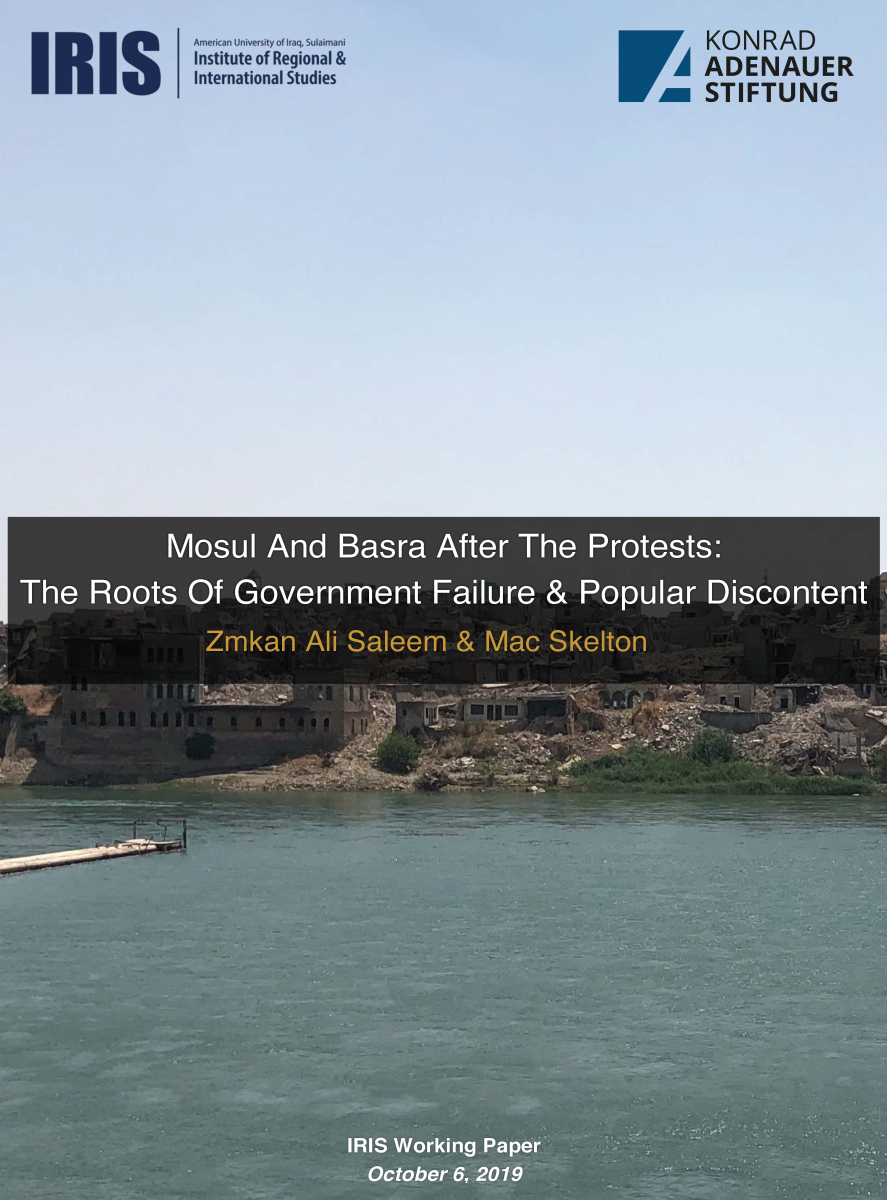Based on 50 interviews with key figures in Basra and Mosul’s government, private sector, and civil society (conducted by the authors during March–September 2019) as well as an extensive desk review of media and government sources, this study aims to understand the breakdown of the relationship between state and citizen at the local level between 2003 and the present. (The present report represents the third and final of a 3-paper series.) The research found that the core driver of government failure was a systemic dynamic of struggles over power and resources between rivaling political factions. This endemic and destructive factionalism is neither a natural nor inevitable state of affairs. Specific political and military blunders in both Mosul and Basra, largely on the part of the Coalition from 2003 onward, introduced and ingrained fraught power dynamics among local actors. These localized competitions – mediated through transactional exchanges and violence – have created fragmented and dysfunctional governmental apparatuses which are structurally incapable of delivering services, coordinating reconstruction, and implementing a reform agenda.
Click here or the report cover below for the full report.






